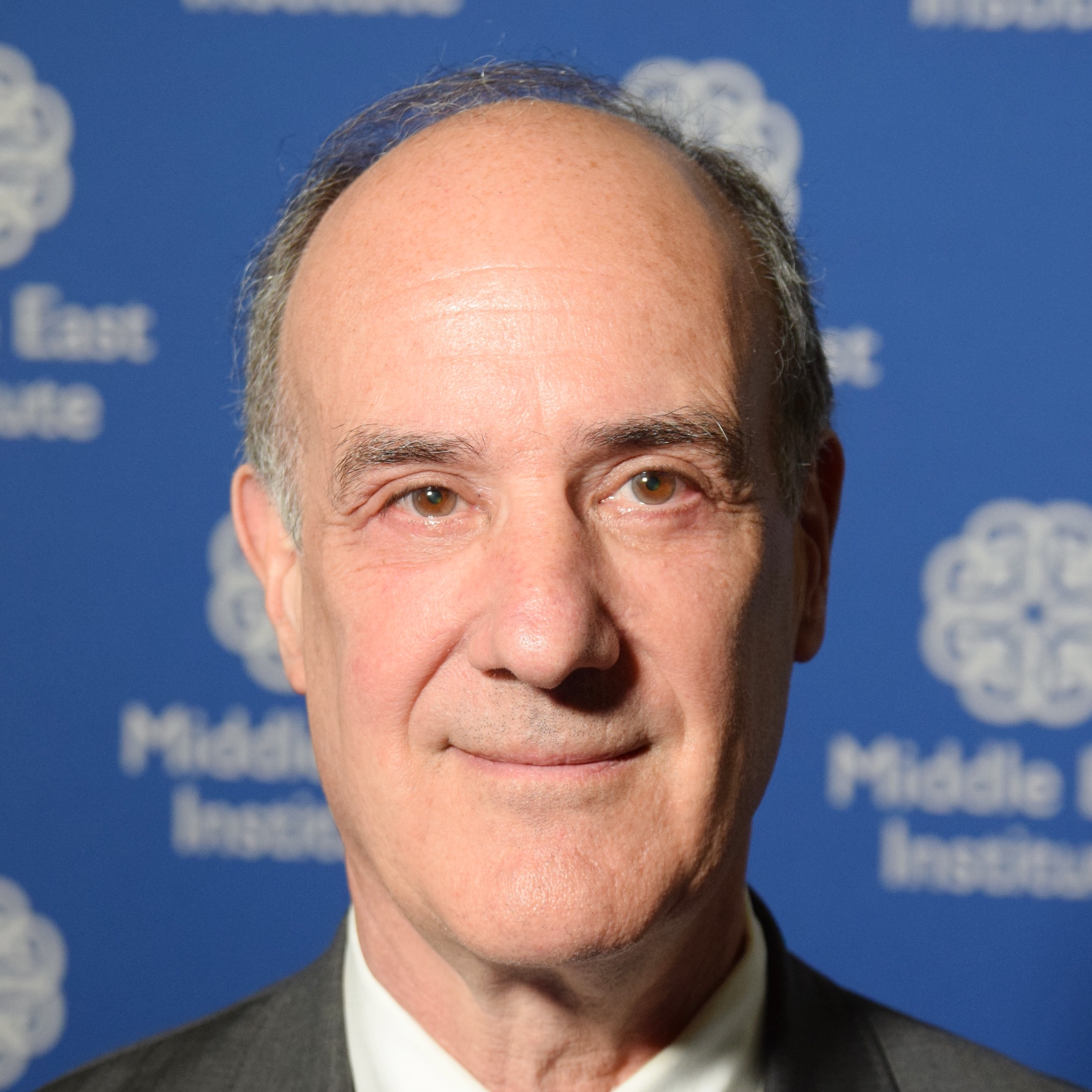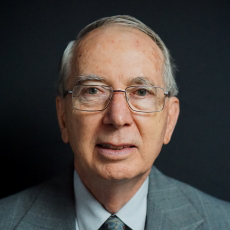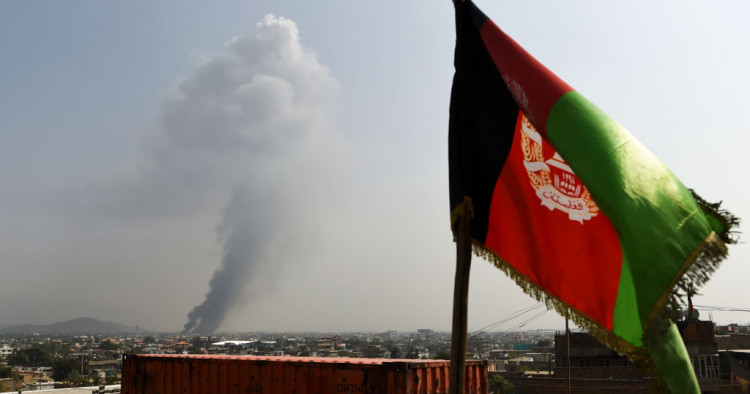Contents:
- New threats and a far more dangerous environment in Afghanistan
- Bennett-Biden: Junior meets senior
- Egypt maintains diplomatic efforts on Gaza
- Testing who’s serious in Libya
- US special envoy urges negotiations in Ethiopia
New threats and a far more dangerous environment in Afghanistan
Charles Lister
Senior Fellow, Director of Syria and Countering Terrorism & Extremism programs

As evacuation efforts by the U.S. and allies at Kabul airport ramp up, so too have terrorist threats to the airport and its airspace. For at least 48 hours, intelligence has indicated an “acute” and “persistent” threat of attacks by ISIS’s branch in Afghanistan, known as Islamic State-Khorasan Province (ISKP). For the first time, military transport aircraft began on Saturday firing flare countermeasures during takeoff — a clear indication of a possible surface-to-air missile threat. Increased security scrutiny is being exerted over the approach to the military side of the airport where evacuation is being conducted, amid concern about possible ISKP intent to deploy suicide bombers into the crowds. Elite special operations force teams from the U.S. and at least a dozen other NATO states have also been launching operations into urban Kabul to extract citizens and transfer them to the airport.
The ISIS-linked terrorist threat underlines the complexity of the jihadist dynamic in Afghanistan, as ISKP is explicitly hostile and in conflict with the Taliban. To destabilize Kabul and heighten tensions between NATO states and the Taliban around the airport would sit squarely within ISIS’s playbook.
Meanwhile, Kabul’s security has been placed in the hands of Haqqani Network commander Khalil Haqqani — one of America’s most wanted terrorists, currently subject to a $5 million bounty. Haqqani, whose operational ties to al-Qaeda date back decades, led Friday prayers at Kabul’s Pul-e Khishti Mosque, where he received a public pledge of allegiance from hundreds of local men. He later accepted oaths of allegiance from several former Afghan government officials, including notorious warlord Gul Agha Sherzai and Heshmat Ghani, the brother of former President Ashraf Ghani. While Khalil Haqqani may be operating under the Taliban’s umbrella, his elevation in Kabul should be taken as a very concerning sign regarding prospects for an al-Qaeda recovery in the months and years to come.
President Joe Biden claimed on Friday that al-Qaeda was “gone” from Afghanistan, though United Nations reporting from July claimed that al-Qaeda was operational in 15 of Afghanistan’s 34 provinces, while a June report asserted that al-Qaeda in the Indian Subcontinent (AQIS) is “such an essential part of the insurgency” in Afghanistan “that it would be difficult, if not impossible, to separate it from its Taliban allies.” When the Taliban captured all major prisons across the country, it appears to have released at least several hundred al-Qaeda operatives — probably doubling the group’s fighting force in Afghanistan.
While several senior Taliban leaders, including Amir Khan Muttaqi and Zabihullah Mujahid, have stated explicitly in recent days that the Taliban would never turn against al-Qaeda, AQIS leader Osama Mahmood has instructed his group to prepare for “important responsibilities” following the U.S. withdrawal. In April, CIA Director Bill Burns told Congress that without a presence in Afghanistan, “the U.S. government’s ability to collect and act on threats will diminish, that’s simply a fact.” That statement assumed the Afghan government would still exist — a Taliban-controlled Afghanistan leaves us virtually blind to monitor a far more dangerous environment.
Follow on Twitter: @Charles_Lister
Bennett-Biden: Junior meets senior
Eran Etzion
Non-Resident Scholar

Naftali Bennett became Israel’s prime minister under extreme circumstances. Just a few months ago neither he nor his coalition partners anticipated this outcome from Israel’s worst-ever constitutional, political, and health crisis. He leads a coalition comprised of almost every branch of the Israeli political tree, save the ultra-orthodox. At 49, he is at the peak of his political career, and by most accounts, his half-term of two years — due to a complex bipartite coalition structure, he is to be succeeded by Yair Lapid in August 2023 — will be the first and last chance history will grant him to lead the nation. In many respects, he represents a new generation of Israeli politicians. He is personally ambitious, quick to react, doesn’t blink if caught contradicting himself, flexible in his views and political platforms, media savvy, and prone to gimmicks. His tiny yarmulke is of the type half-jokingly referred to as “transparent,” as are his rhetoric and politics. If the words “depth,” “gravitas,” or “strategy” are missing from this description, it’s not a coincidence. The only book he’s written is the instant booklet “how to defeat a pandemic,” published exactly a year ago, when he was in the opposition and riding the COVID-19 wave. Nowadays the booklet’s half-baked recipes are in turn quoted and ridiculed daily by his opponents.
Bennett will be coming to Washington this week with virtually no diplomatic experience, leading a coalition based on maintaining the Israeli-Palestinian stalemate and focusing on building back the Israeli economy and political-administrative norms after Benjamin Netanyahu’s destructive era. Building back better is perhaps the prominent common denominator between him and President Joe Biden, but they are otherwise worlds and generations apart. They are separated by 30 years, in which Biden accumulated political, diplomatic, and policy experience Bennett will never have. Ideologically as well, they could hardly be more distant from each other.
In terms of the agenda, Bennett will be carrying the all-too-familiar baggage of Iran-Iran-Iran, sounding very much like his mentor Netanyahu. Though wisely deciding not to openly provoke the U.S. on this sensitive issue at this JCPOA reentry moment, the new prime minister’s actual positions on Iran are virtually identical to his predecessor’s. Bennett will warn against “a bad deal” and push his host to coordinate covert and overt military actions and economic and diplomatic sanctions on Iran in case current negotiations fail. On the Palestinian issue, he will try to put a positive spin on what is actually a “conflict management” approach, newly rebranded as “conflict mitigation,” but essentially designed to deepen Israel’s grip on the West Bank and keep the right-center-left coalition afloat. On the Gaza powder keg and Hamas as a political powerhouse within Palestinian society, neither side has any fresh or bold ideas, so “conflict management” will continue there too, until the next violent eruption. The same pattern will apply to the imminent “day after” Palestinian Authority President Mahmoud Abbas departs his office and/or this world.
With the “Kabul effect” hanging thick in the Oval Office air, the traditional photo-op at the beginning of the meeting and the press conference at the end will be rich with mutual compliments and reassurances of “the unbreakable bond” and the “unshakeable commitment” to Israel’s security. But in reality, both leaders have enormous fish to fry in their respective domestic arenas, and each essentially needs the other to leave him be. Thus, the old, mutual “no surprises” formula will come in handy. The two will meet again, if at all, after the next major regional surprise.
Follow on Twitter: @eranetzion
Egypt maintains diplomatic efforts on Gaza
Mirette F. Mabrouk
Senior Fellow, Director of the Egypt program

On Aug. 18, the head of the Egyptian General Intelligence Service (GIS), Abbas Kamel, became the first Egyptian official to visit Israeli Prime Minister Naftali Bennett since the latter’s new government was sworn in in June.
One Egyptian official who spoke to the independent media organization Mada Masr said that the while the meetings were about raising the level of security and political coordination between the two countries, they hinged on the Egypt-mediated Gaza cease-fire, which, according to the source, “needs constant follow up,” in order to avoid any escalation of violence in Gaza.
The official’s remarks were prescient. On Aug. 21 Israel launched airstrikes against Gaza, following clashes between Israeli soldiers and Palestinian protesters. The demonstrations had been called for by Hamas, in commemoration of the 1969 attack on al-Aqsa Mosque, when an Australian extremist set fire to the mosque. That fire ravaged the older parts of the mosque, most notably destroying the 900-year- old pulpit, a gift of Sultan Salahaddin al-Ayyubi (known in the West as Saladin). Israeli forces said “rioters had tried to climb the security fences” and that they had “responded with riot dispersal means.” In addition, Israeli strikes hit four targets where it claimed Hamas was manufacturing weapons. The human toll has been at least 41 Palestinian wounded, according to the Palestinian Ministry of Health, including a 13-year-old boy, in critical condition with a head wound. Israeli forces have reported one soldier seriously wounded.
Matters might have spiraled out of control if it had not been for swift mediation efforts by Egypt and the United Nations. Egypt has been working hard to avoid any repeat of last May’s carnage, when over 250 Palestinians were killed, the majority of them civilians, 66 of them children, and 12 were killed in Israel. That conflict was halted by a cease-fire brokered largely by Egypt, which effectively gained a two-for- one: it quelled the conflict on its borders and raised its international cachet.
Egypt is acutely aware, however, that while maintaining a cease-fire might be impressive, it is merely a stop gap and that a long-term solution must be found.
That long-term solution is going to be complicated by an increasingly hard-line Israeli position and infighting between Hamas and the Palestinian Authority (PA). Indeed, Egyptian negotiators have often said, anonymously, that bridging the gap between the Palestinian factions is almost as complicated as bridging the one between the Israelis and the Palestinians. A meeting planned for last June in Cairo between the two Palestinian factions fell though due to disagreements between the sides. One major disagreement is to do with Gaza reconstruction; the PA governs the West Bank and Hamas governs the Gaza Strip and both Israel and the U.S. have insisted that no funding for Gaza reconstruction go through Hamas. Egypt is continuing to try: Kamel’s visit also included talks with both factions and they’re hoping to bring them together for a meeting in September.
However, while Egypt moved swiftly to prevent bloodshed in the latest conflict, damage has been done. Egypt has once again closed the Rafah border, in both directions, until further notice, in “protest against the actions of Hamas.” The border crossing is a serious security issue for Egypt, but for Palestinians who need to cross over into the Egypt for medical reason, it amounts to a form of collective punishment. For Palestinians, even a moderate improvement in their lot can’t come fast enough.
Follow on Twitter: @mmabrouk
Testing who’s serious in Libya
Jonathan M. Winer
Non-Resident Scholar

Last week, two important actors in Libya’s continuing drama made statements about their intentions which if carried out would substantially advance Libya’s ability to move beyond its current transitional Government of National Unity (GNU) and conduct elections as scheduled on Dec. 24 in an environment of potentially greater stability.
First, on Aug. 19, Russia Foreign Minister Sergey Lavrov appeared at a Moscow press conference with Libyan Foreign Minister Najla Mangoush to announce a “consultative mechanism” for securing coordinated withdrawal of foreign military forces from Libya. Russia has long endorsed the withdrawal, most recently at the June 23, 2021 Berlin Conference. Ultimately, success means the departure of the 2,000 mercenaries from Russia’s state-sponsored Wagner Group who supported Libyan warlord Khalifa Hifter’s failed 2019 attempt to conquer Tripoli, some 7,000 Syrian fighters brought in by Turkey to stop him, and forces funded by the UAE from Chad and Sudan. But any withdrawals would be gradual: in an apparent Afghanistan reference, Mangoush said the foreign withdrawals must be synchronized to “avoid repeating negative lessons of some of our neighbors” and chaos.
On Aug. 21 Libyan Parliamentary Speaker Aguila Saleh told Russian TV that Libya’s House of Representatives (HoR) would enact an election law “within a week.” He then immediately postponed by a week the scheduled Aug. 23 meeting of the HoR that would have enabled it to happen.
The two statements, and Aguila’s latest deferral of action, illustrate the continuing gap between actions and deeds that must be narrowed for Libya to successfully carry out its first elections since June 25, 2014, and for the country’s political and military leaders to then abide by them.
In reality, nothing except his personal ambitions prevents Aguila from moving forward with scheduling elections, or Russia from cutting a deal with Turkey and pulling out its mercenaries, who engaged in serious atrocities when supporting Hifter’s effort to conquer the country. Neither should want Libya to wind up as a divided, unstable country subject to ongoing turf wars, terrorism, criminal activity, and electrical and water shortages whose capacity to pump oil is recurrently taken hostage at the whim of local warlords. But both also want to maintain, or even increase, their hard-earned influence and opportunities in Libya.
An immediate test for Aguila will come on Aug. 30 when the HoR either does or does not authorize national elections. For Russia, the question will be whether it now takes visible steps to again engage Turkey on the sequenced removal of their respective forces.
The Biden administration’s special envoy and ambassador, Richard Norland, continues shuttle diplomacy, seeking to maintain momentum on both foreign force removal and the elections, even as some 2.8 million Libyans completed the process to enable them to vote. Aligning international actors and Libyans to accept elections as inevitable remains essential. So will getting them all to accept any outcome and thereby avoid further rounds of conflict afterwards.
US special envoy urges negotiations in Ethiopia
David H. Shinn
Non-resident Scholar

The White House announced a visit to Djibouti, Ethiopia, and the UAE by U.S. Special Envoy to the Horn of Africa Jeff Feltman that began on Aug. 15. Feltman went first to Djibouti, continuing to Ethiopia, the primary focus of the mission. He met with Deputy Prime Minister Demeke Mekonnen. (Prime Minister Abiy Ahmed was on an official visit to Turkey.) Feltman’s goal was to encourage the government of Ethiopia and the Tigray People’s Liberation Front (TPLF) to begin political negotiations and to end their conflict that began in November 2020. He also sought to contribute to the establishment of stability in the wider region.
The visit began after the TPLF had made significant military gains and displaced Ethiopian central government and Eritrean forces from most of Tigray Region. The TPLF had also moved into parts of neighboring Afar and Amhara regions. Feltman’s visit occurred against the backdrop of an apparent agreement between the TPLF and the Oromo Liberation Army (OLA), which is based in western Ethiopia, to squeeze central government forces and topple the Abiy government. Ethiopia has designated both the TPLF and OLA as terrorist organizations. Feltman’s visit followed one to Addis Ababa by USAID Administrator Samantha Power, who met with Ethiopia’s minister for peace. Both Prime Minister Abiy and Deputy Prime Minister Demeke were conveniently unavailable.
The prospects for success of the Feltman trip were not high and, at least publicly, the results seem to bear out that analysis. Deputy Prime Minister Demeke called on the United States to condemn the “treasonous” acts of the TPLF in the strongest terms possible considering the historical ties between Ethiopia and the U.S. According to the Ethiopian account of the Demeke meeting, Feltman did not condemn the TPLF but rather stressed that maintaining and sustaining Ethiopia’s sovereignty, peace, and unity were the fundamentals of U.S. policy toward Ethiopia. Demeke reportedly responded that failure to condemn the TPLF is “uncharacteristic of the fraternal relationship” between our two countries.
Follow on Twitter: @AmbShinn
Photo by WAKIL KOHSAR/AFP/Getty Images
The Middle East Institute (MEI) is an independent, non-partisan, non-for-profit, educational organization. It does not engage in advocacy and its scholars’ opinions are their own. MEI welcomes financial donations, but retains sole editorial control over its work and its publications reflect only the authors’ views. For a listing of MEI donors, please click here.













